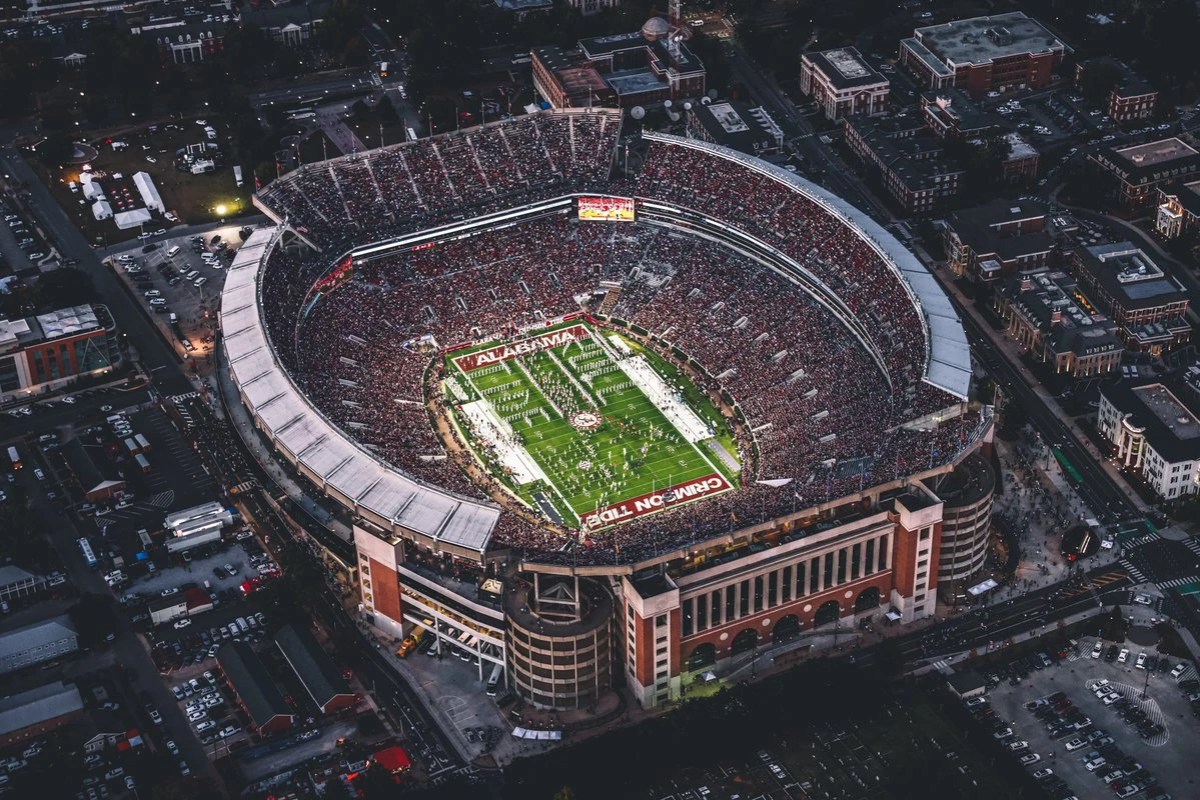Exploring The Alabama Stadium Capacity: A Deep Dive Into Bryant-Denny Stadium
When it comes to college football, few places evoke as much passion and excitement as Bryant-Denny Stadium in Tuscaloosa, Alabama. With its storied history and iconic status within the sports community, understanding the Alabama stadium capacity is crucial for fans, players, and event organizers alike. This stadium not only serves as a home for the University of Alabama Crimson Tide football team, but it also represents a cultural landmark for the state of Alabama and its devoted sports enthusiasts.
The capacity of Bryant-Denny Stadium has seen significant changes since its inception in 1929. Originally designed to accommodate a modest crowd, the stadium has undergone multiple renovations and expansions to support the growing demand for tickets from an ever-expanding fan base. Today, the Alabama stadium capacity stands among the largest in the NCAA, cementing its reputation as a must-visit venue for college football aficionados.
In this article, we will explore various aspects of Alabama stadium capacity, including its history, current status, and what makes it a unique venue in the world of sports. We will also address some frequently asked questions to provide a comprehensive overview for anyone interested in understanding the significance of Bryant-Denny Stadium in Alabama’s athletic landscape.
What is the Current Alabama Stadium Capacity?
The current capacity of Bryant-Denny Stadium is approximately 100,077 seats, making it one of the largest stadiums in the United States and the largest in the Southeastern Conference (SEC). This impressive number reflects the stadium's ability to host a vast audience, enhancing the game-day experience for fans and athletes alike.
How Has the Alabama Stadium Capacity Changed Over the Years?
Over the decades, the capacity of Bryant-Denny Stadium has fluctuated due to renovations and expansions. Here are some key milestones in the stadium's capacity history:
- 1929: Original capacity of 12,000.
- 1935: Expanded to 23,000.
- 1975: Increased to 61,000.
- 1988: Further expanded to 70,000.
- 2006: Expanded to 92,138.
- 2010: Final expansion to current capacity of 100,077.
What Makes Bryant-Denny Stadium Unique?
Apart from its impressive capacity, Bryant-Denny Stadium boasts several unique features that contribute to its charm:
- Fan Experience: The stadium provides an exhilarating atmosphere, especially during home games, where the roar of the crowd creates an electrifying ambiance.
- Tradition: The University of Alabama has a rich football history, and the traditions associated with the stadium, such as the Million Dollar Band and the pre-game rituals, add to its allure.
- Location: Situated in Tuscaloosa, the stadium is easily accessible for fans coming from various parts of the state and beyond.
How Does Alabama Stadium Capacity Compare to Other Major Stadiums?
When compared to other college football stadiums, Bryant-Denny Stadium holds its own among the largest venues. Here are some comparisons:
- Michigan Stadium: With a capacity of approximately 107,601, Michigan Stadium is the largest in the United States.
- Beaver Stadium: Located in Pennsylvania, this stadium has a capacity of 106,572.
- Ohio Stadium: Known for its unique architecture, Ohio Stadium can seat around 102,780 fans.
What Are the Future Plans for Alabama Stadium Capacity?
As the University of Alabama continues to thrive in college football, discussions about future expansions or renovations to Bryant-Denny Stadium occasionally arise. Although no specific plans have been confirmed, there are ongoing considerations regarding:
- Increased Amenities: Enhancing fan experience with more concessions, bathrooms, and seating options.
- Technology Upgrades: Implementing advanced technology for better viewing experiences and fan engagement.
- Safety Improvements: Ensuring that the stadium meets all modern safety regulations and protocols.
What Are Some Notable Events Held at Bryant-Denny Stadium?
Over the years, Bryant-Denny Stadium has hosted numerous memorable events beyond college football games. Some notable instances include:
- Major college football playoff games.
- SEC Championship games.
- Concerts and other sporting events.
How Can Fans Get Tickets to Experience Alabama Stadium Capacity?
For those eager to experience the excitement of Bryant-Denny Stadium, securing tickets is essential. Here are some tips:
- Official University Website: The University of Alabama's athletics website provides information on ticket availability and purchasing options.
- Secondary Market: Platforms like StubHub and Ticketmaster often have tickets available for resale.
- Season Tickets: For die-hard fans, purchasing season tickets can be a great way to ensure access to all home games.
Conclusion: The Significance of Alabama Stadium Capacity
In conclusion, the Alabama stadium capacity, particularly that of Bryant-Denny Stadium, is more than just a number; it represents a community, a history, and a passion for college football that runs deep in the hearts of Alabamians and fans across the nation. Understanding the evolution of this iconic venue and its impact on the sporting landscape helps underscore its significance, making it a treasured landmark within the realm of college athletics.
Article Recommendations
- Donald Trump Personality Type
- Jackerman All Videos
- Matthew Mcconaughey Brother
- John Cazale
- Is Martha Maccallum Married
- Is Simone Biles Pregnant
- Storm Castle Cafe Menu
- Shin Min Ah
- Vontae Davis Autopsy Results
- Mountain High Outfitters


